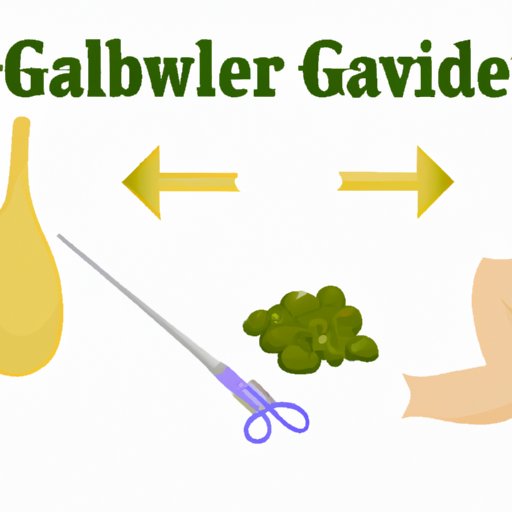
How to Stop Weight Gain After Gallbladder Removal
Gallbladder removal or cholecystectomy is a common surgical procedure where the gallbladder, a small organ located below the liver, is removed due to various health concerns. As with any surgery, weight gain can be a potential complication, and this issue is particularly relevant for those who have had their gallbladder removed. In this article, we will discuss some effective ways to prevent weight gain after this type of surgery.
Understanding the Causes of Weight Gain After Gallbladder Removal
After the gallbladder is removed, the digestive system undergoes significant changes, which can result in weight gain. The changes in digestion and metabolism can cause the body to absorb more fat, leading to an increase in body weight.
Furthermore, the liver continues to produce bile, but the absence of a gallbladder affects the release of bile into the digestive tract. Bile helps to break down fats, and the absence of a gallbladder can cause food to move more slowly through the digestive tract, leading to discomfort and bloating.
In addition, the production of insulin may also be affected, which can lead to fluctuations in blood sugar levels and an increase in appetite and hunger.
Despite the possible unpleasant side effects of gallbladder removal, research has shown that the removal of the gallbladder does not necessarily result in significant or long-term weight gain. Discussing these concerns with a medical professional will provide you with the most accurate information.
Making Dietary Modifications to Control Weight After Surgery
One of the best ways to prevent weight gain after gallbladder removal is to make healthy dietary choices.
For example, instead of consuming three large meals per day, it is highly recommended to consume smaller meals more frequently throughout the day. This will promote an efficient digestive system and make it less likely to experience discomfort or bloating. Additionally, increasing your intake of fresh produce, lean protein, whole grains, and healthy fats while reducing or eliminating processed foods is beneficial.
It is essential to be mindful of meal portions while learning which foods should and should not be eaten to prevent discomfort. It may be useful to begin by keeping a food journal to determine which foods are well-tolerated and which are not.
Physical Activity as a Tool for Weight Control
Physical activity is an excellent way to regulate weight and promote overall health. After a surgical procedure, it is best to start slowly with exercises that are not too taxing for the body.
Low-impact exercises, such as walking, swimming, water aerobics, and yoga, are suitable options to begin increasing physical activity and promote successful weight loss. Experts recommend engaging in at least thirty minutes of moderate exercise per day for positive weight control results and overall health benefits.
In addition to routine exercise, incorporating an active lifestyle into daily routines is beneficial. By parking further away from the destination, taking the stairs, and limiting time spent sedentary (e.g., watching tv, sitting at a computer), physical activity levels are likely to increase, leading to successful weight management.
The Importance of Medical Monitoring
Medical diagnosis and monitoring are critical components to manage successful weight loss after gallbladder removal.
Ensuring proper post-op care and regular medical checkups will allow for the management of any side effects or complications and healthy weight loss. A physician can also provide professional recommendations and tailored treatment options and advice daily to overcome any roadblocks or barriers to reaching your goals.
Inspiring Success Stories
Lastly, hearing and learning from individuals who have experienced successful weight loss after gallbladder removal can provide helpful insight and encouragement.
One example of successful post-op weight loss is from a woman who has had her gallbladder removed for five years. She started by regulating her meal portions and excluding processed foods. She also chose to consume foods like lean proteins and leafy greens, which made her feel full. An abrupt change in eating habits was difficult, but she discovered that consistency and a long-term approach allowed her to achieve her weight loss goals.
Another man, after going through gallbladder removal, experienced weight gain and digestive discomfort. He brought up these concerns with his physician and worked with a registered dietitian to receive dietary recommendations. His diet consisted of low-fat foods, fruits, and vegetables and a consistent exercise routine that allowed for successful weight loss.
Conclusion
In conclusion, weight gain after gallbladder removal is a common concern. Adapting a healthy diet, increasing physical activity, and seeking medical attention will assist in prevention and successful weight management.
By making small changes to daily eating and exercise patterns, attaining and maintaining a desirable and healthy body weight after gallbladder removal is possible. Always keep communication with medical providers open; it will ensure the best possible outcome for overall health.




